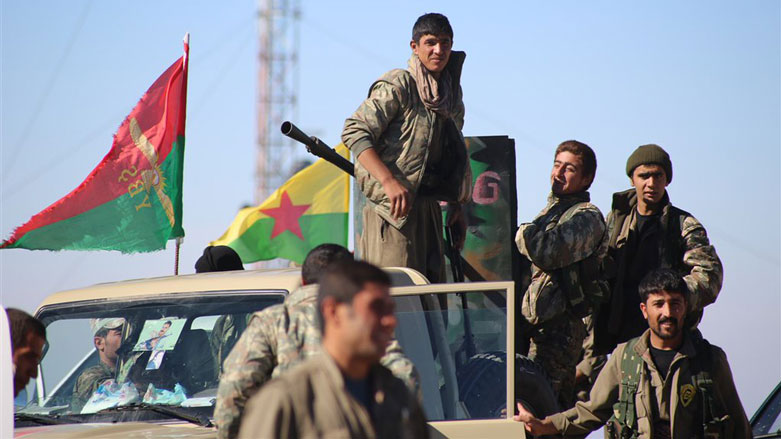PKK announces withdrawal from Shingal, handover to Iraqi forces

ERBIL, Kurdistan Region (Kurdistan 24) – The Kurdistan Workers’ Party (PKK) in a statement released on Friday announced their withdrawal from the Kurdish-Ezidi city of Sinjar (Shingal), claiming the area is now free of security threats.
The statement was released by the PKK’s umbrella group, the Kurdistan Communities Union (KCK) Executive Council Co-presidency.
The statement mentions that the Ezidis in the area are no longer under threat of attacks, stating the minority group is now far-better organized, and security is being maintained inside and around Shingal. The group said it would, therefore, withdraw its ‘guerillas’ from the area.
“The Ezidis established a relationship with the Iraqi government after ISIS [Islamic State (IS)]was completely expelled from the surroundings of Shengal [Shingal], and they started efforts to resolve their problems through talks. The Iraqi government also showed sensitivity towards answering the demands of Ezidis,” read the KCK’s statement.
The statement, however, also suggested the Turkish government and “other powers” were attempting to make “the Kurds and Iraq confront each other.” The KCK claimed an understanding with Baghdad was “allowing them to review the presence of guerrilla forces in Shengal.”
“We have decided to withdraw our guerrilla forces from Shengal.”
The PKK is a designated ‘terrorist’ organization in Turkey, the EU, and the US.
Turkey has repeatedly warned that they will launch a military operation on the Kurdistan Region border and Shingal against the PKK.
“If the Iraqi central government does not clear the PKK presence from Shingal, we will do so,” Turkish President Recep Tayyip Erdogan threatened on Wednesday.
Shingal was the scene of the 2014 genocide perpetrated by the Islamic State (IS) on the ethnoreligious Kurds of Ezidi faith.
The PKK found a foothold there after coming down from its mountain bases on the Iraq-Iran border to back the Kurdistan Region’s Peshmerga forces and Syrian Kurdish People’s Protection Units (YPG) to open a corridor to safety for the Ezidis.
Its presence there also led to intra-Kurdish tensions, with the Kurdistan Region demanding its withdrawal from Shingal after its liberation from IS.
The Turkish army has lately increased its incursions into the Region in pursuit of PKK fighters who have been engaged in a decades-long guerrilla war against successive Ankara governments for the attainment of Kurdish rights, including self-rule.
Earlier this month, Turkish Foreign Minister Mevlut Cavusoglu claimed that Ankara had reached a deal with Iraq’s federal government to conduct joint operations against the PKK’s strongholds in the Qandil mountains.
His Iraqi counterpart Ibrahim al-Jaafari rejected the statement from Ankara, saying Baghdad would not allow the presence of Turkish troops on Iraqi soil. Turkey, however, still maintains a base in northern Iraq.
Editing by Nadia Riva
